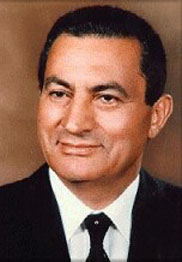Still, Russia has the trappings of a dual executive system, and there is always the possibility that the premiership and presidency could turn into rival centres of power. When Putin handed over the presidency to Medvedev and assumed the premiership, it was widely believed that he would remain the real master of Russia, with Medvedev acting as his puppet or the friendly face he could present to the world. Events seemed to support this interpretation, with Putin appearing to use the premiership as a way of ruling form the shadows.
 More recently, though, there have appeared what might be the first signs of a Putin-Medvedev split. Russia's economy has been hit hard by the collapse in oil prices, and without petrodollars to throw around the regime finds it harder to buy compliance. Russian cities have seen demonstrations recently, with angry people hit by the economic crisis taking to the streets. Perhaps in an effort to shore up his own position, Medvedev has made some statements that could be interpreted as criticism of his prime minister's response. In the more presidential of semi-presidential countries, presidents often seek to attach the blame for all regime failures to their premiers; this would have been normal when Putin or his predecessor were Russia's presidents. The prospect of a Putin-Medvedev split is interesting, though one should not assume that its victor would be Medvedev. Putin's power seems largely to come from his being Putin and from his personal control of the state security apparatus; that could easily trump Medvedev's mandate in a comedic election, unless Russia's leading figures decide that Putin has become a liability.
More recently, though, there have appeared what might be the first signs of a Putin-Medvedev split. Russia's economy has been hit hard by the collapse in oil prices, and without petrodollars to throw around the regime finds it harder to buy compliance. Russian cities have seen demonstrations recently, with angry people hit by the economic crisis taking to the streets. Perhaps in an effort to shore up his own position, Medvedev has made some statements that could be interpreted as criticism of his prime minister's response. In the more presidential of semi-presidential countries, presidents often seek to attach the blame for all regime failures to their premiers; this would have been normal when Putin or his predecessor were Russia's presidents. The prospect of a Putin-Medvedev split is interesting, though one should not assume that its victor would be Medvedev. Putin's power seems largely to come from his being Putin and from his personal control of the state security apparatus; that could easily trump Medvedev's mandate in a comedic election, unless Russia's leading figures decide that Putin has become a liability. The nascent Putin-Medvedev split could of course all be a charade, with the two pals merely playing good-cop bad-cop with the Russian people. The BBC, however, reports that there may be genuine differences emerging between the two. These differences are not primarily political, but musical. It appears that Russia's prime minister is a fan of Abba, recently flying in Abba tribute act Bjorn Again to play a private concert for himself, a mysterious and attractive young lady, and some of his cohorts (all at a trifling cost of £20,000). President Medvedev, however, is a keen fan of Deep Purple, last year enjoying them in concert at the 15th anniversary celebrations of Gazprom. Perhaps it was a fraught discussion on rockism that has brought forth tensions in the Putin-Medvedev partnership.
The nascent Putin-Medvedev split could of course all be a charade, with the two pals merely playing good-cop bad-cop with the Russian people. The BBC, however, reports that there may be genuine differences emerging between the two. These differences are not primarily political, but musical. It appears that Russia's prime minister is a fan of Abba, recently flying in Abba tribute act Bjorn Again to play a private concert for himself, a mysterious and attractive young lady, and some of his cohorts (all at a trifling cost of £20,000). President Medvedev, however, is a keen fan of Deep Purple, last year enjoying them in concert at the 15th anniversary celebrations of Gazprom. Perhaps it was a fraught discussion on rockism that has brought forth tensions in the Putin-Medvedev partnership.To follow all the latest Russian news, make sure to read Pravda.
images





